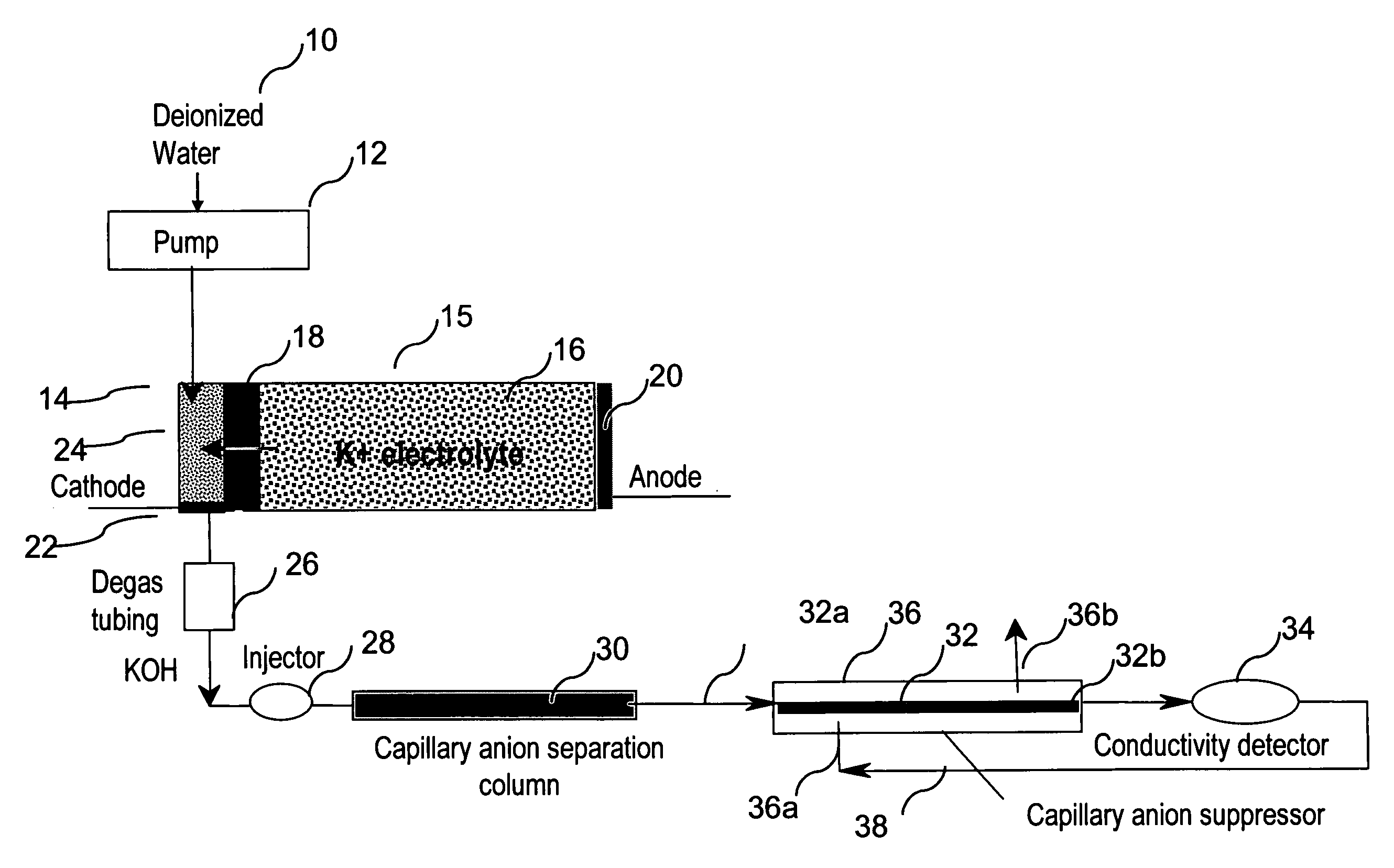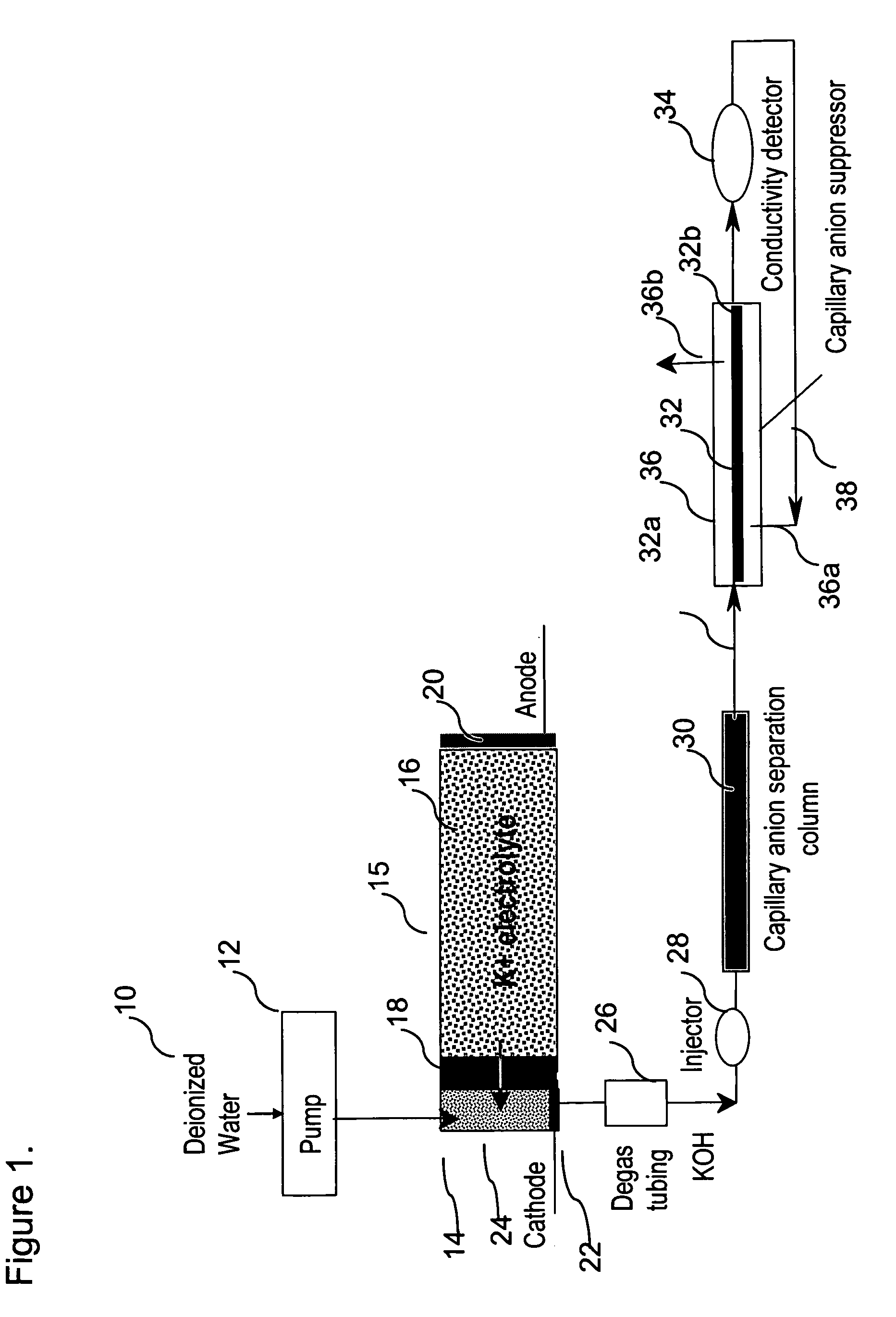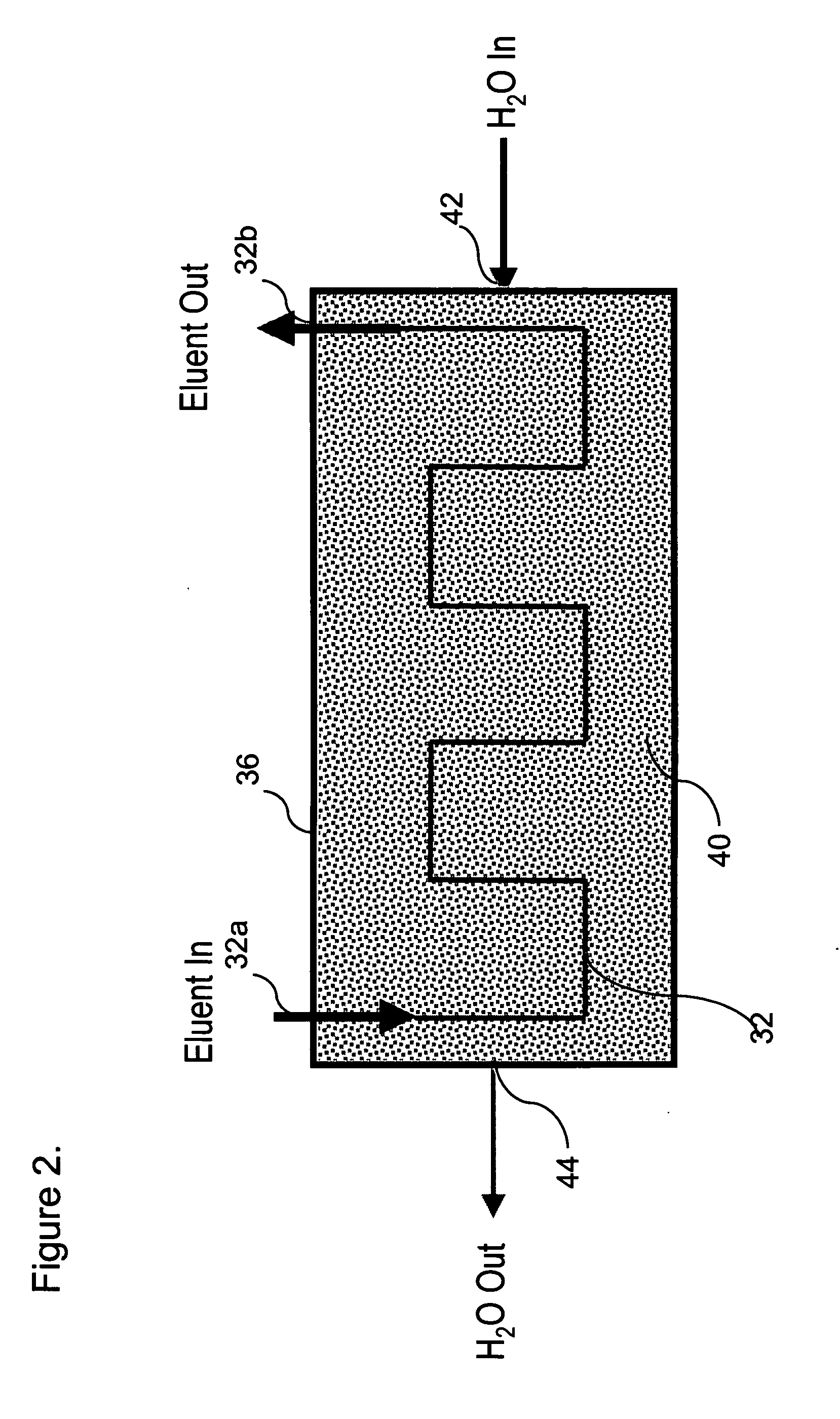Membrane suppressor with an outlet substantially non-retentive for ionic species
a suppressor and membrane technology, applied in the direction of ion-exchangers, separation processes, instruments, etc., can solve the problems of significant reduction of the conductivity of analytes, and the exhaustion of the suppressor chromatographic effluent channel
- Summary
- Abstract
- Description
- Claims
- Application Information
AI Technical Summary
Problems solved by technology
Method used
Image
Examples
example 1
Preparation of Functionalized Polymeric-Based Ion Exchange Tubing or Membrane or Screen with Continuous Non-Functionalized Section
[0068]The polymeric-based cation exchange capillary tubing with continuous non-functionalized section is formed as follows. The base polymeric capillary tubing is made of a PTFE (Teflon) type supplied by Zeus Inc. (Orangeburg, S.C.). The length of the capillary tubing is typically 20 to 50 cm and its internal diameter is typically 0.001 inch to 0.010 inch with a typical wall thickness of 0.001 to 0.010 inch. A defined length of such tubing (e.g., 10 to 90% of the entire starting length of the tubing) is immersed in a solution of 30% styrene w / w in methylene chloride solvent. Grafting occurs by irradiation with gamma rays at a dose of 10,000 rads / hour for about 48-120 hours at 80-90° F. under nitrogen atmosphere. The grafted section of the PTFE tubing is then soaked in 10% w / w chlorosulfonic acid in methylene chloride for 4 hours at about 40° C. The grafte...
example 2
Preparation of Functionalized Polymeric-Based Ion Exchange Tubing or Membrane or Screen with Continuous Non-Functionalized Section Through Selective Decomposition of Ion Exchange Sites
[0071]This example describes the method to prepare the polymeric-based cation exchange capillary tubing with continuous non-functionalized section through selective decomposition of ion exchange sites on a defined section of a continuous piece of ion exchange material such as tubing, membrane or screen. The preparation of cation exchange membrane with continuous non-functionalized section is given as an example.
[0072]A piece of fully sulfonated ion exchange membrane was prepared using a PTFE film as the starting material as described in Example 1. A defined section of this piece of sulfonated membrane was then immersed in a reaction vessel containing a solution of 6% sodium hypochlorite while the remaining section of the membrane was not in contact with the sodium hypochlorite solution. The reaction ve...
example 3
Separation of Common Anions Using Capillary Ion Chromatography System Employing a Capillary Electrolytic Suppressor with Non-Functionalized Outlet Section
[0074]This example demonstrates the use of electrolytic capillary anion suppressors of the type depicted in FIG. 4 in the capillary IC separation of common anions. The capillary IC system used in the experiment was constructed according to the scheme shown in FIG. 1. A modified Dionex P680 pump (Dionex Corporation, Sunnyvale, Calif.) was used to deliver deionized water at 12 μL / min. To generate a KOH eluent, deionized water was first passed through Dionex ATC-HC and CTC-1 columns to remove ionic contaminants and then routed into a KOH eluent generator that was prepared by modifying a Dionex EGC-KOH cartridge (P / N 058900). A Keithley Model 220 Programmable Current Source (Keithely Instruments, Inc., Cleveland, Ohio) was used to supply the DC current to the anode and cathode of the KOH eluent generator. The outlet of the KOH eluent g...
PUM
 Login to View More
Login to View More Abstract
Description
Claims
Application Information
 Login to View More
Login to View More - R&D
- Intellectual Property
- Life Sciences
- Materials
- Tech Scout
- Unparalleled Data Quality
- Higher Quality Content
- 60% Fewer Hallucinations
Browse by: Latest US Patents, China's latest patents, Technical Efficacy Thesaurus, Application Domain, Technology Topic, Popular Technical Reports.
© 2025 PatSnap. All rights reserved.Legal|Privacy policy|Modern Slavery Act Transparency Statement|Sitemap|About US| Contact US: help@patsnap.com



